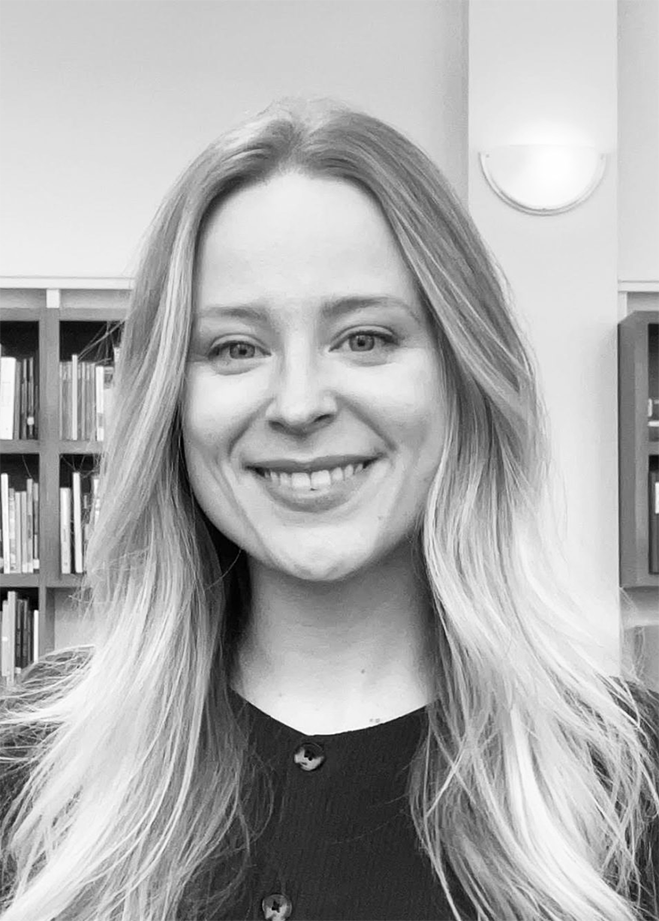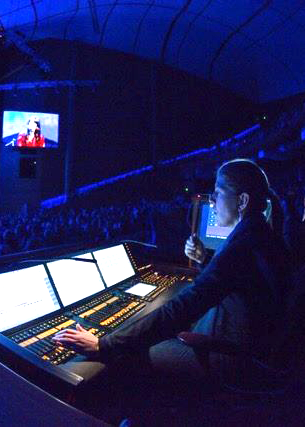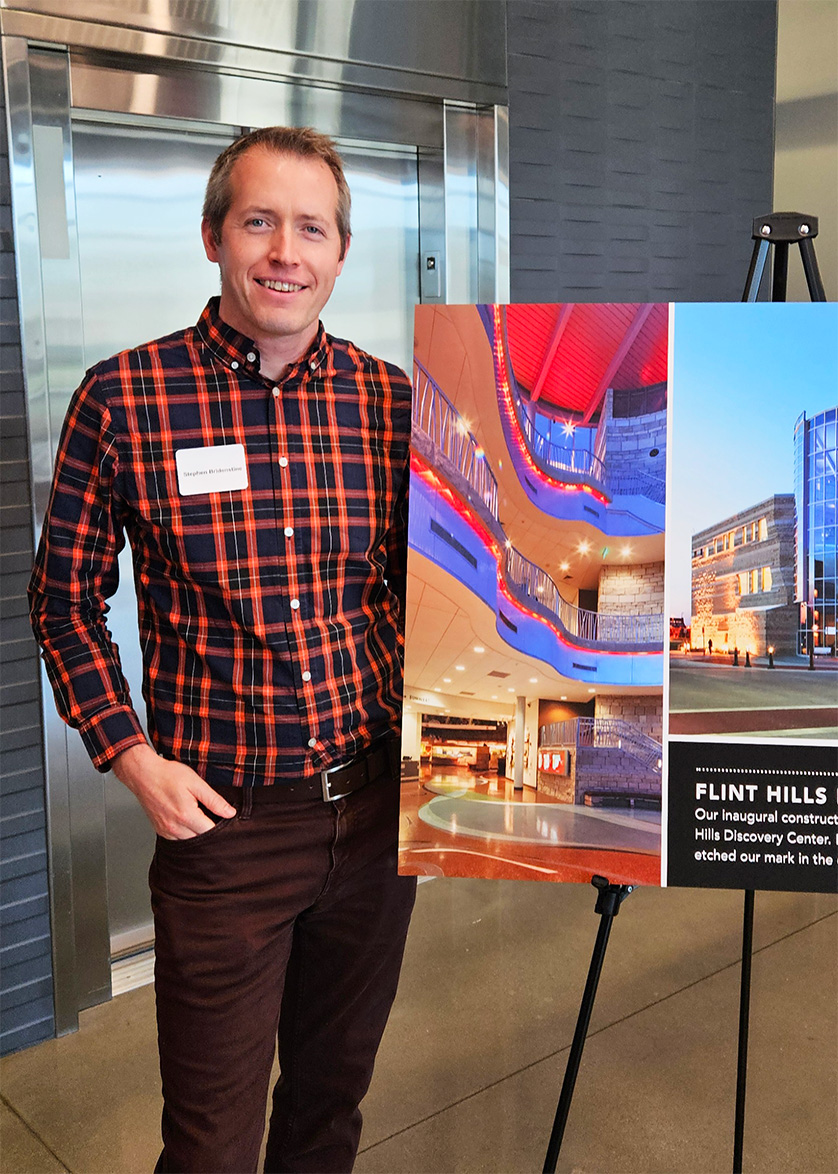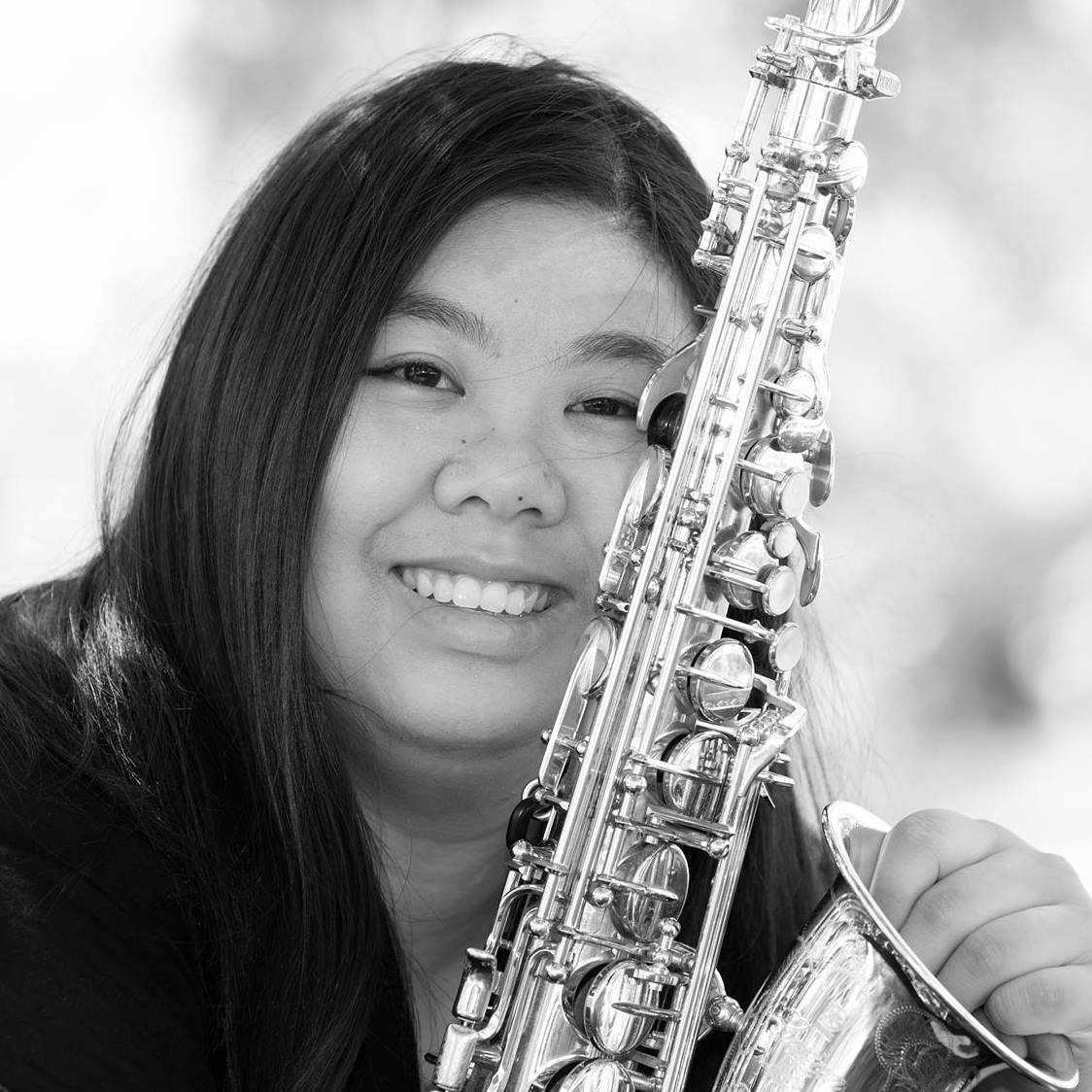Ellen Keith
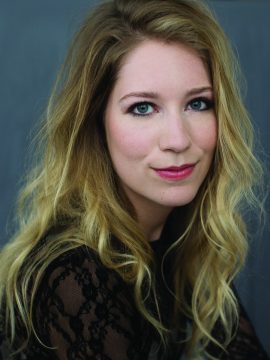
UBC Creative Writing graduate Ellen Keith (MFA ’16) recently published her debut novel The Dutch Wife – a historical fiction work that she completed during the MFA Optional Residency program. The book, which won the HarperCollinsPublishers Ltd/UBC Prize for Best New Fiction, reached #1 on the Globe & Mail Canadian Fiction Bestseller List.
Why did you choose to study Creative Writing at UBC?
I completed my BA in history and creative writing at the University of Alberta. I really wanted to combine these two fields by writing historical fiction but wasn’t sure whether an MFA was the way to go or whether I should focus on a Master’s in history. Couldn’t I manage the writing part on my own time? In the end, it was the reputation of UBC’s Creative Writing program that convinced me to focus on an MFA. The faculty sounded wonderful, and I loved the idea of the optional-residency program, which would allow me to go ahead with my plans to move to Europe while still enjoying the benefits of a UBC education. As long as I had a WiFi connection, I could participate in class from anywhere, and I took full advantage of this. I visited over two dozen countries during the course of my MFA! Most of this involved backpacking, but some of it was closely tied to my thesis. My novel takes place in Germany, Argentina, and the Netherlands, and I was able to spend time in each of these countries during the research process, which added so much to my understanding of the worlds of my characters.
What did you enjoy most about the Creative Writing program?
What I enjoyed most about the Optional-Residency MFA Program was the wonderful community of writers it introduced me to. Writing is such a solitary act, and this was the first time I felt a strong sense of solidarity and friendship connected to writing. Regardless of where students are based, they all share the same passion for writing, the same doubts and challenges. It was so rewarding to engage with people who encouraged me, helped me move from the initial idea for a novel to a published book. The program also taught me to become more disciplined with my writing habits. If it weren’t for this, I would probably still be working on the first draft of my manuscript today.
What were some of your most meaningful experiences at UBC?
The Optional-Residency MFA Program offers a 10-day summer residency each July at UBC campus. I attended this all three years of my studies, and it made an enormous difference in the connection I felt to the program and the university. It allows students who’ve been communicating online all year to meet in person, to get to know the faculty, campus life, and Vancouver. The residencies allowed me to experiment in other genres, while forming lasting friendships with writers across the world.
What choices did you make at UBC that contributed to your success?
Despite studying from abroad, I still found ways to be active in the program outside of my classes. I took on a two-year Work Learn position with Booming Ground, which at the time was a non-credit creative writing mentorship program at UBC. This was a fantastic experience. It gave me one-on-one teaching experience, which I later expanded by moving to Vancouver for one semester so I could T.A. an undergraduate writing class. Finally, I spent over a year reading prose submissions on the editorial board of PRISM international. These decisions led to a more well-rounded experience as a UBC graduate student, and increased my skills and confidence in teaching writing.
Is your current career path as you originally intended? What other jobs did you have prior to travelling and pursuing your MFA?
After completing my Bachelor of Arts, I spent a year working as the research coordinator for the City of Edmonton’s Naming Committee, which is responsible for selecting historically relevant names for streets, neighbourhoods, and parks (yes, such a committee really exists!). After that, I spent a year travelling across South America, and then moved to Europe, where I began my MFA while working part-time as a freelance translator and editor.
I now work in Amsterdam as the publications coordinator for Fair Wear Foundation, an NGO that works with European clothing brands to try to improve labour conditions in clothing factories around the world. While I really enjoy this position, I hope to eventually make creative writing a more central part of my career. I have plans to teach a couple of writing classes over the summer, which feels like a good first step.
When did you decide you wanted to be a writer? What challenges did you face in launching your writing career?
I don’t remember a time when I didn’t want to be a writer! I’ve been attempting to write novels (key word: attempting!) since age 10. In most cases, I’d get 30 pages in and then lose momentum. The biggest challenge has been forcing myself to make time almost every day to write, and finding ways to make social and financial sacrifices to safeguard this. For example, I decided to take some time between jobs to prioritize writing, but in order to get by without any income, I spent several months writing from Central America, where the cost of living was much more manageable. In my current job, I work only four days per week so I have more time to write, but I also live in a flat with three roommates so I can afford to set aside this writing day. I’ve also had to learn how to listen to others’ feedback and determine when to follow this. For my novel, this meant cutting out 150 pages when part of the plot wasn’t working! Despite how hard it was to throw out so much work, it was ultimately the right decision for the story.
From a career perspective, what do you most enjoy about being a writer, and what do you find challenging?
I still don’t feel entirely comfortable calling myself a writer in terms of my career. I’ve heard a lot of former classmates struggling with this as well, and I think it comes down to this nagging fear that your work isn’t “art”, that you’re not living solely off a writing income, so can you call yourself that? Self-doubt is a big obstacle. It’s difficult to not constantly question your own work, to worry that you could have done better if only you’d written one or two more drafts. Trying to look at my own work objectively is still challenging, but it helps to have an incredible group of supportive writers and editors around to help me see what’s working and not working. What I enjoy most is the freedom to live in my own imagination, to watch characters come alive until it feels like I’ve known them all my life. Seeing a big project like a novel move from a seed of an idea to a finished project is the most rewarding experience I’ve had to date.
Tell us about your novel The Dutch Wife – what inspired the story? How did you develop it?
I’ve always been really interested in WWII, and especially the way we portray it now, our tendency to simplify the narrative into “us vs. them”, “good vs. evil”. I kept wondering about the motivations and beliefs of the perpetrators, what could make so many everyday Germans capable of carrying out such atrocities. My initial goal was to examine the psychology of an SS officer, trying to unpeel the layers of hatred and propaganda to find the person beneath it all. How did he rationalize his behaviour? Also, having just spent time in South America, I wanted to braid in the idea of the strong bonds that Argentina had with the Nazis, both before and after the war.
However, during the course of my research, I came across information about the concentration camp brothels that were designated for prisoner use. This came as such a surprise, and I was so drawn to the idea of the women who were forced to work there. Few people have heard of these brothels, in part because of the stigma that would have been attached to the forced prostitutes and the men who visited them. This discovery developed into Marijke’s story, which quickly grew to take over the focus of the novel.
What are the challenges of writing a story based in history? How much historical research was required to tell this story?
There have been plenty of times that I was kicking myself for trying to write historical fiction for my first novel. Despite studying WWII history during my Bachelor’s, I underestimated how time-consuming and demanding the research process would be. When you’re writing historical fiction, every sentence, every detail, can lead to unexpected research questions. What kind of fuel did people use for cooking during the war? When did the expression “catch and release” come into use? As I mentioned, I made a point of visiting all of the sites featured in my book: the concentration camps, the buildings in Buenos Aires, the streets of Amsterdam. Memoirs and witness testimonies taught me a lot, especially regarding the “disappearances” that occurred in Argentina in the 1970s. But no matter how much research you do, the struggle lies in trying to balance accuracy with capturing the essence of the truth. You have to ask yourself what’s more important: adhering to every little fact, or finding a way to make the history blend with your story.
Can you talk a bit about your writing process and daily routine? Are there any habits you have established that have helped you as a writer?
I strive to write at least five days per week, although that’s become a lot more difficult now that I have a day job. Most of my writing happens late at night, and to get myself into the right state of mind, I often begin by reading a chapter of a novel or a poem. One useful habit I’ve developed is learning to read books from a writing perspective, jotting down lines that jump out at me, paying attention to a story’s structure and style. I rely on Internet extensions to block social media while I’m working and try to keep my phone out of the room. It helps me to listen to music that fits my characters. For example, I played a lot of classical music while writing The Dutch Wife, since my protagonist is a violinist. When stuck, I read sections of my work aloud to see what’s standing out or failing to jump off the page.
What advice would you give to aspiring writers?
If you dream of getting your writing published, the most important step is taking writing seriously. Treat it like a part-time job, forcing yourself to carve out time to write until this becomes habit. If you’re waiting to feel inspired, you’ll never finish a draft. Lock your door, shut off your phone, and focus. Experiment with different writing routines, different ways of brainstorming and outining stories until you find something that clicks for you. If possible, find other writers to form a critique group. (Meetup.com is a good place to start looking!) Not only will you be able to bounce ideas off people and receive constructive feedback, you may find that such a group keeps you motivated and on track in what can otherwise be a very lonely hobby or occupation.
What book had the most impact on you?
It’s difficult to choose a favourite, but one novel that has always stuck with me is William Golding’s Lord of the Flies. Ever since I first read it in a high school English class, I’ve been fascinated by the way it reflects who we are as people and how we behave in society. It makes you contemplate whether humans are inherently good or evil, a question that I returned to again and again when writing about war and oppression in The Dutch Wife. What do I believe about my character, SS Officer Karl Müller? Where do his motivations lie, and to what extent does he believe his intentions are good?
What’s next for you?
Following Canadian publication, The Dutch Wife will be also released in the United States and translated into Dutch and Czech, so I’m busy with a lot of little things related to this. That said, I’m itching to start a new novel in the coming months!
Ellen Keith



UBC Creative Writing graduate Ellen Keith (MFA ’16) recently published her debut novel The Dutch Wife – a historical fiction work that she completed during the MFA Optional Residency program. The book, which won the HarperCollinsPublishers Ltd/UBC Prize for Best New Fiction, reached #1 on the Globe & Mail Canadian Fiction Bestseller List.
Why did you choose to study Creative Writing at UBC?
I completed my BA in history and creative writing at the University of Alberta. I really wanted to combine these two fields by writing historical fiction but wasn’t sure whether an MFA was the way to go or whether I should focus on a Master’s in history. Couldn’t I manage the writing part on my own time? In the end, it was the reputation of UBC’s Creative Writing program that convinced me to focus on an MFA. The faculty sounded wonderful, and I loved the idea of the optional-residency program, which would allow me to go ahead with my plans to move to Europe while still enjoying the benefits of a UBC education. As long as I had a WiFi connection, I could participate in class from anywhere, and I took full advantage of this. I visited over two dozen countries during the course of my MFA! Most of this involved backpacking, but some of it was closely tied to my thesis. My novel takes place in Germany, Argentina, and the Netherlands, and I was able to spend time in each of these countries during the research process, which added so much to my understanding of the worlds of my characters.
What did you enjoy most about the Creative Writing program?
What I enjoyed most about the Optional-Residency MFA Program was the wonderful community of writers it introduced me to. Writing is such a solitary act, and this was the first time I felt a strong sense of solidarity and friendship connected to writing. Regardless of where students are based, they all share the same passion for writing, the same doubts and challenges. It was so rewarding to engage with people who encouraged me, helped me move from the initial idea for a novel to a published book. The program also taught me to become more disciplined with my writing habits. If it weren’t for this, I would probably still be working on the first draft of my manuscript today.
What were some of your most meaningful experiences at UBC?
The Optional-Residency MFA Program offers a 10-day summer residency each July at UBC campus. I attended this all three years of my studies, and it made an enormous difference in the connection I felt to the program and the university. It allows students who’ve been communicating online all year to meet in person, to get to know the faculty, campus life, and Vancouver. The residencies allowed me to experiment in other genres, while forming lasting friendships with writers across the world.
What choices did you make at UBC that contributed to your success?
Despite studying from abroad, I still found ways to be active in the program outside of my classes. I took on a two-year Work Learn position with Booming Ground, which at the time was a non-credit creative writing mentorship program at UBC. This was a fantastic experience. It gave me one-on-one teaching experience, which I later expanded by moving to Vancouver for one semester so I could T.A. an undergraduate writing class. Finally, I spent over a year reading prose submissions on the editorial board of PRISM international. These decisions led to a more well-rounded experience as a UBC graduate student, and increased my skills and confidence in teaching writing.
Is your current career path as you originally intended? What other jobs did you have prior to travelling and pursuing your MFA?
After completing my Bachelor of Arts, I spent a year working as the research coordinator for the City of Edmonton’s Naming Committee, which is responsible for selecting historically relevant names for streets, neighbourhoods, and parks (yes, such a committee really exists!). After that, I spent a year travelling across South America, and then moved to Europe, where I began my MFA while working part-time as a freelance translator and editor.
I now work in Amsterdam as the publications coordinator for Fair Wear Foundation, an NGO that works with European clothing brands to try to improve labour conditions in clothing factories around the world. While I really enjoy this position, I hope to eventually make creative writing a more central part of my career. I have plans to teach a couple of writing classes over the summer, which feels like a good first step.
When did you decide you wanted to be a writer? What challenges did you face in launching your writing career?
I don’t remember a time when I didn’t want to be a writer! I’ve been attempting to write novels (key word: attempting!) since age 10. In most cases, I’d get 30 pages in and then lose momentum. The biggest challenge has been forcing myself to make time almost every day to write, and finding ways to make social and financial sacrifices to safeguard this. For example, I decided to take some time between jobs to prioritize writing, but in order to get by without any income, I spent several months writing from Central America, where the cost of living was much more manageable. In my current job, I work only four days per week so I have more time to write, but I also live in a flat with three roommates so I can afford to set aside this writing day. I’ve also had to learn how to listen to others’ feedback and determine when to follow this. For my novel, this meant cutting out 150 pages when part of the plot wasn’t working! Despite how hard it was to throw out so much work, it was ultimately the right decision for the story.
From a career perspective, what do you most enjoy about being a writer, and what do you find challenging?
I still don’t feel entirely comfortable calling myself a writer in terms of my career. I’ve heard a lot of former classmates struggling with this as well, and I think it comes down to this nagging fear that your work isn’t “art”, that you’re not living solely off a writing income, so can you call yourself that? Self-doubt is a big obstacle. It’s difficult to not constantly question your own work, to worry that you could have done better if only you’d written one or two more drafts. Trying to look at my own work objectively is still challenging, but it helps to have an incredible group of supportive writers and editors around to help me see what’s working and not working. What I enjoy most is the freedom to live in my own imagination, to watch characters come alive until it feels like I’ve known them all my life. Seeing a big project like a novel move from a seed of an idea to a finished project is the most rewarding experience I’ve had to date.
Tell us about your novel The Dutch Wife – what inspired the story? How did you develop it?
I’ve always been really interested in WWII, and especially the way we portray it now, our tendency to simplify the narrative into “us vs. them”, “good vs. evil”. I kept wondering about the motivations and beliefs of the perpetrators, what could make so many everyday Germans capable of carrying out such atrocities. My initial goal was to examine the psychology of an SS officer, trying to unpeel the layers of hatred and propaganda to find the person beneath it all. How did he rationalize his behaviour? Also, having just spent time in South America, I wanted to braid in the idea of the strong bonds that Argentina had with the Nazis, both before and after the war.
However, during the course of my research, I came across information about the concentration camp brothels that were designated for prisoner use. This came as such a surprise, and I was so drawn to the idea of the women who were forced to work there. Few people have heard of these brothels, in part because of the stigma that would have been attached to the forced prostitutes and the men who visited them. This discovery developed into Marijke’s story, which quickly grew to take over the focus of the novel.
What are the challenges of writing a story based in history? How much historical research was required to tell this story?
There have been plenty of times that I was kicking myself for trying to write historical fiction for my first novel. Despite studying WWII history during my Bachelor’s, I underestimated how time-consuming and demanding the research process would be. When you’re writing historical fiction, every sentence, every detail, can lead to unexpected research questions. What kind of fuel did people use for cooking during the war? When did the expression “catch and release” come into use? As I mentioned, I made a point of visiting all of the sites featured in my book: the concentration camps, the buildings in Buenos Aires, the streets of Amsterdam. Memoirs and witness testimonies taught me a lot, especially regarding the “disappearances” that occurred in Argentina in the 1970s. But no matter how much research you do, the struggle lies in trying to balance accuracy with capturing the essence of the truth. You have to ask yourself what’s more important: adhering to every little fact, or finding a way to make the history blend with your story.
Can you talk a bit about your writing process and daily routine? Are there any habits you have established that have helped you as a writer?
I strive to write at least five days per week, although that’s become a lot more difficult now that I have a day job. Most of my writing happens late at night, and to get myself into the right state of mind, I often begin by reading a chapter of a novel or a poem. One useful habit I’ve developed is learning to read books from a writing perspective, jotting down lines that jump out at me, paying attention to a story’s structure and style. I rely on Internet extensions to block social media while I’m working and try to keep my phone out of the room. It helps me to listen to music that fits my characters. For example, I played a lot of classical music while writing The Dutch Wife, since my protagonist is a violinist. When stuck, I read sections of my work aloud to see what’s standing out or failing to jump off the page.
What advice would you give to aspiring writers?
If you dream of getting your writing published, the most important step is taking writing seriously. Treat it like a part-time job, forcing yourself to carve out time to write until this becomes habit. If you’re waiting to feel inspired, you’ll never finish a draft. Lock your door, shut off your phone, and focus. Experiment with different writing routines, different ways of brainstorming and outining stories until you find something that clicks for you. If possible, find other writers to form a critique group. (Meetup.com is a good place to start looking!) Not only will you be able to bounce ideas off people and receive constructive feedback, you may find that such a group keeps you motivated and on track in what can otherwise be a very lonely hobby or occupation.
What book had the most impact on you?
It’s difficult to choose a favourite, but one novel that has always stuck with me is William Golding’s Lord of the Flies. Ever since I first read it in a high school English class, I’ve been fascinated by the way it reflects who we are as people and how we behave in society. It makes you contemplate whether humans are inherently good or evil, a question that I returned to again and again when writing about war and oppression in The Dutch Wife. What do I believe about my character, SS Officer Karl Müller? Where do his motivations lie, and to what extent does he believe his intentions are good?
What’s next for you?
Following Canadian publication, The Dutch Wife will be also released in the United States and translated into Dutch and Czech, so I’m busy with a lot of little things related to this. That said, I’m itching to start a new novel in the coming months!
